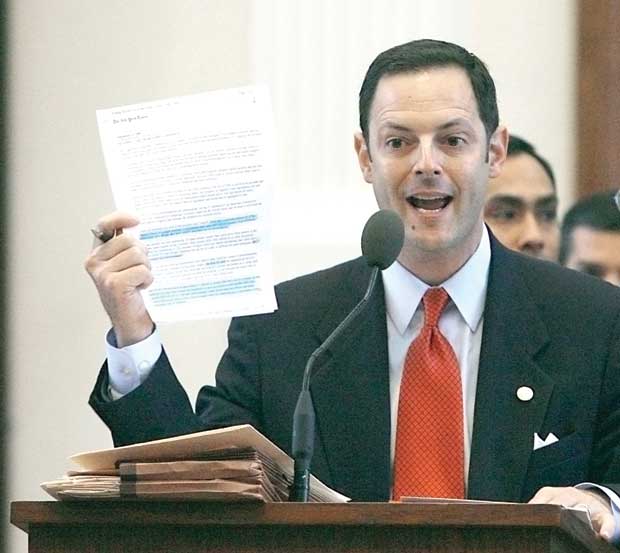Anchia, Garcia said bills would address inequities, not create new rights
Rep. Rafael Anchia, D-Dallas, and Sen. Sylvia Garcia, D-Houston, filed companion bills Wednesday, Dec. 17 that would allow adopted children in Texas to have the names of both parents listed on their supplemental birth certificates, regardless of the parents’ gender.
Both bills would amend the Texas Health and Safety Code, which requires the supplemental birth certificate of an adopted child to be in the names of the adoptive parents, but allowing only one female parent and one male parent.
“Texas families come in all shapes and sizes, including those formed by adoption. An adopted child needs to have a birth certificate that accurately reflects the child’s family,“ Anchia said in a statement. “Texas laws should protect and support the rights of children and families — not hinder them.”
“This bill removes an unreasonable obstacle to some children getting the important legal documentation they need,” Garcia said. “A birth certificate is vital and should accurately reflect both parents. Neither these children nor their parents should be burdened with an incomplete birth certificate that omits a loving parent.”
Under the current law, adopted children of same-sex couples are denied accurate birth certificates, which can cause difficulty in obtaining a passport or Social Security card or in registering for school, the lawmakers said. Same-sex parents must carry and present documentation proving their legal parentage for medical care, school enrollment and international travel, they said.
Without a birth certificate, the child is left in legal limbo and can never have the same recognition of family status that is afforded other adopted children, both Anchia and Garcia said.
Equality Texas Executive Director Chuck Smith praised the bills. “A birth certificate describes the relationship between parents and their children, not the relationship between parents. Whether or not you approve of the parent’s relationship, it is cruel to deny a child accurate documentation,” he said.
The lawmakers stressed that their bills do not create any new rights, privileges or relationships.
According to the 2010 US Census, more than 9,000 same-sex couples are raising children in Texas. Among them are Felissa and Jeri Beasley of Wichita Falls. They know the stress it takes to have both parents listed on the supplemental birth certificate first hand.
It took the couple three years to make sure both of their names were on their children’s birth certificate.
Felissa Beasley retired from the military so she could take care of her family, including Jeri Beasley’s two children. But before Felissa could be a recognized parent, she had to change her last name, submit adoption papers and deal with endless paperwork.
“The driving force was for one specific moment, when I won’t even be alive,” Felissa Beasley said. She cited her funeral as an example. As a veteran, the American flag at her funeral would not go to her wife and children under current Texas rules.
“Texas should encourage family stability by ensuring parents are recognized and valued for the influential role they have in their children’s lives,” Smith added. “Being a parent is the hardest job anyone will ever have; the state shouldn’t make it harder.”
This will be the fourth consecutive legislative session that Anchia has filed this legislation. This is the first time the bill has been filed in the Senate.
This article appeared in the Dallas Voice print edition December 19, 2014
















